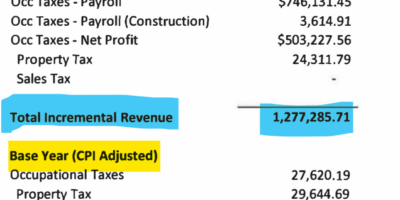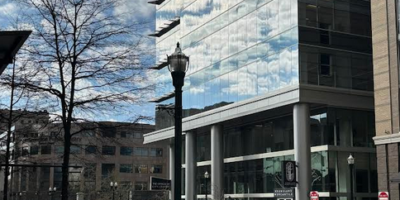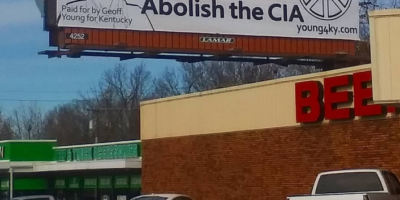Frankfort to Elkhorn: an imaginative stretch
By Wes Houp
Editor’s note: The slackwater venture paddlists have floated through Frankfort, down Lock 4, and arrived at Steamboat Hollow on mile 58 of the Kentucky River, where they have braved stinging nettles, set up camp and eaten of a buffalo sausage four-squash red sauce ladled over a slightly al dente penne pasta. On a night walk of the bottom, the author has become separated from the rest of the party.
“Do you own this place?” I asked in the quavering tone of a child who’s just crossed a forbidden fence. “I just stopped here to stretch my legs. I’ve been paddling all day.”
“Son, I’ve seen your camp and your comrades. Your dinner and subsequent grunts of satisfaction reminded me of the commendations heaped upon James Harrod by new members at his Boiling Springs settlement in the summer of 1775. They were as much impressed with his ability to cook as by his great knowledge of the country. They were delighted by his ‘excellent stew of buffalo and as much lettuce and endive as they could eat.’ I mean you and your company no harm. But I’d appreciate your cooperation. Just come with me.”
The figure turned, faced in the direction of the bluff and pointed. “Just up the hill, there in the woods.” He began walking, one arm extended before him, the other motioning me to join him.
Despite gripping fear, I began to move, but rather than join him my legs hefted me on a parallel course. The succulent stalks of soybeans snapped beneath me, their velvety foliage sweeping reluctantly against my pajamas. I was drawn on phantom power toward an ever-deepening darkness of wood. In a matter of minutes I stood in the overhang of the tree-line, the soy field now enveloped behind me. The figure was gone, and I quickly dropped to one knee to conceal my location. A twig snapped directly in front of me, and there the figure reappeared, arms on each hip, no more than four feet from my crouched position.
Colonel Chinn reveals himself
“It’s okay, lad. I’m more familiar to you than you might recognize. The name’s Chinn. Colonel George Morgan Chinn, although you can just call me Colonel.”
“Colonel Chinn of Mercer County? The Colonel Chinn who lived in the stone house atop the palisade opposite Minter’s Branch near High Bridge? The Colonel Chinn, former director of the Kentucky Historical Society?” I asked, straining to see his face.
“The one and only.” Suddenly a match-head exploded in the darkness and rose to meet the bowl of a burled pipe clinched in his jaw. The figure wore Marine Corps dress blues and white hat, and an arm extended, the hand opened for a shake. Rising slowly to my feet, I hesitantly took the calloused hand in mine.
“Sir, pleasure to meet you, sir. But…uh…didn’t you die sometime in the late ’80s?”
“Well, that’s a matter for semantic…” He paused and removed the pipe from his mouth. “Let’s just say it’s a matter for ontological conjecture. It seems that those of us who make the river a life-long obsession never pass away completely. The river, as you might have suspected, persists in us, a living, flowing history, and finds its way into the bloodstream, even when the bloodstream dries up. Everything, after all, is part of the same living current, just as Thoreau mused to his brother near the end of their week-long float down Concord and Merrimack:
‘All things seemed with us to flow; the shore itself, and the distant cliffs, were dissolved by the undiluted air. The hardest material seemed to obey the same law with the most fluid, and so indeed in the long run it does. Trees were but rivers of sap and woody fibre, flowing from the atmosphere, and emptying into the earth by their trunks, as their roots flowed upward to the surface. And in the heavens there were rivers of stars, and milky ways, already beginning to gleam and ripple over our heads. There were rivers of rock on the surface of the earth, and rivers of ore in its bowels, and our thoughts flowed and circulated, and this portion of time was but the current hour. Let us wander where we will, the universe is built round about us, and we are central still. If we look into the heavens they are concave, and if we were to look into a gulf as bottomless, it would be concave also. The sky is curved downward to the earth in the horizon, because we stand on the plain. I draw down its skirts. The stars so low there seem loath to depart, but by a circuitous path to be remembering me, and returning on their steps.’
So here I am yet, my hand flowing into yours on this beautiful gift of a night.”
The Colonel continued: “What started out as a casual get away for you boys several years ago—an opportunity to get out of town and lollygag on the water—has turned into quite a quest, an obsession if you will. You are driven to paddle this whole blessed river, and you won’t be satisfied until you set foot on the muddy banks of the Ohio. I know. I’ve been watching your progression.”
I balked. “You’ve been watching? How is that possible?”
“Hey, son, anything’s possible when you’ve experienced the kind of transubstantiation that I’ve experienced. I materialize with the river mist.” He motioned with his hand and cupped a palmful of vapor.
“What is it that you wanted to show me in the woods?” I asked. He turned and pondered the darkness behind him.
“Nothing really. I just like standing over here. Those soybeans were chaffing my legs.” He stooped over and swept the back of his hand across his perfectly creased pant legs. “You know, you’re not the first Houp I’ve pulled out of rank to lecture. Back in ’56 I pulled your father out of line at the Wilmore First National Bank. He was on furlough from Camp Lejeune. Recognizing a fellow jarhead, I pulled him aside, asked his name, rank, outfit , what his plans were and offered some fatherly encouragement: ‘Well, son,’ I said, ‘as a Marine you’ll never have to apologize for being in the Army.’ And that’s the sort of thing I’d like to say to you.”
I stood in silence for moment. “But I’m not nor ever have been in the Marine Corps. I do, however, enjoy war narratives. By trade, though, I’m just a lowly English teacher.” He scoffed and waved his arms.
“Of course you’re not a Marine. A Marine doesn’t stumble around in the fog like some Nancy with slumped shoulders and a pocketful of hootch. My point is that you, your comrades and I share an obsession, a deep and abiding love of the river, and this obsession puts you in the company of an elite group of past, present, and future river rats. Know, too, that your obsession with paddling the length of the river will exact a spiritual as well as physical toll. When it’s time to punch your card, you may find yourself, like me, haunting the river mist.”
By this time, I couldn’t tell if the moisture dripping from my brow was sweat or mist. Not wanting to play the fool to such an august and worldly apparition, I nonetheless…did. The only words I could find were “Wow. That’s…uh… real good information.” No sooner than I had opened my mouth, the Colonel was gone in a swirl of mist and everything else went black.
Lost and found
When I came to, Danny and Troy were standing over me shining their headlamps in my face. “What happened to you? That last round of gin shots must’ve gone straight to your head,” Troy chortled as he helped me to my feet. We were standing in the middle of the soybeans, precisely where I’d first seen the Colonel rise from the mist.
“Where’d you guys disappear to? You won’t believe who I was just talking to.” I looked around in vain, while Danny and Troy looked at each other and then back at me.
Danny explained, “We just stopped back there to wait for Lyle. You weren’t talking to anybody. You were standing here for a minute, and then you were down on the ground. We thought maybe you got sick or something and had to sit down.” They both laughed and shined their lights back to where Lyle and Josh were admiring the cosmos through a break in the mist.
“Hey guys,” Lyle called. “Looks like the fog’s lifting. It’s near midnight. We’re heading back.” The fog was lifting, but my mind was still thick with it. A heron squawked down by the river, spooked by something passing too close in the darkness. I decided it best to save my story for morning. Sleep might bring some clarity.
Listen to Wes Houp perform “Henderson’s Folly”:
[haiku url=”https://noclexington.com/wp-content/uploads/2011/10/Hendersons-Folly.mp3″ title=” Henderson’s Folly”]




Leave a Reply